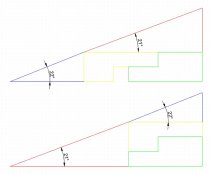I think it will take a million years to evolve a monkey that will sit at a typewriter and type long enough to type anything of significance. I am sort of evolved and I had a hard time in college finding the motivation to type my homework. Has anybody put any number of monkeys in a room with a typewriter and seen if they do anything with it except sniff it and use it to scratch their armpits? I think given an infinite amount of time, the monkeys will break the typewriters throwing them around the room - bored silly because they are in a room full of typewriters.
Yes but there was a monkey evolved enough to write the works of Shakespeare - he was called Shakespeare (or possibly Bacon
 ) so it has already happened.
) so it has already happened.It doesn't need an infinite number, just an unbounded number (ie if it hasn't happened yet there are more monkeys to keep going until it does.)






